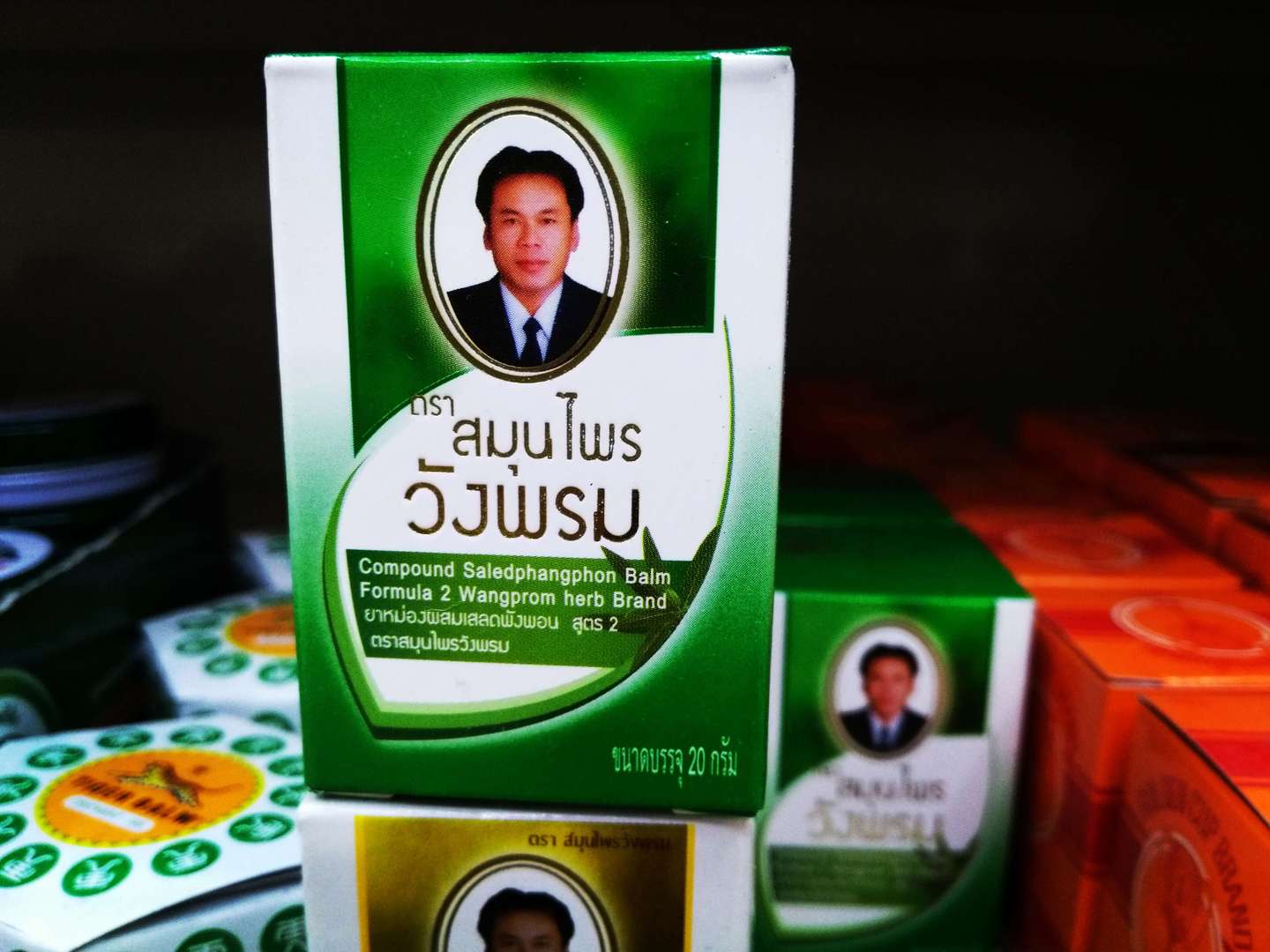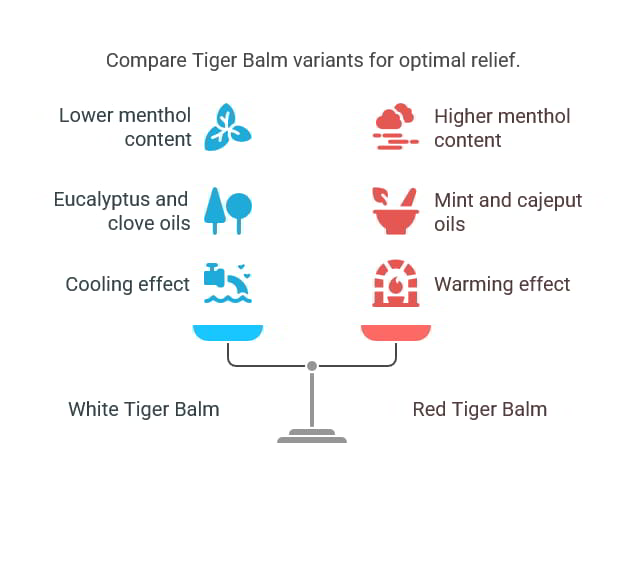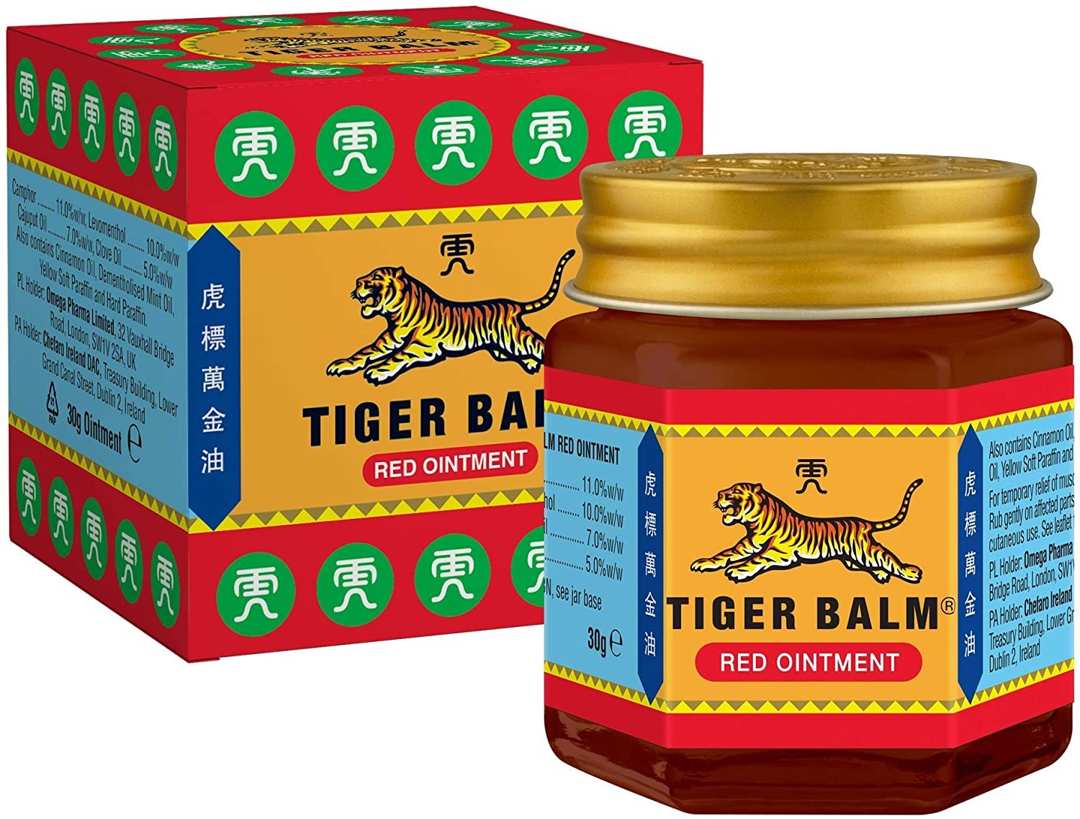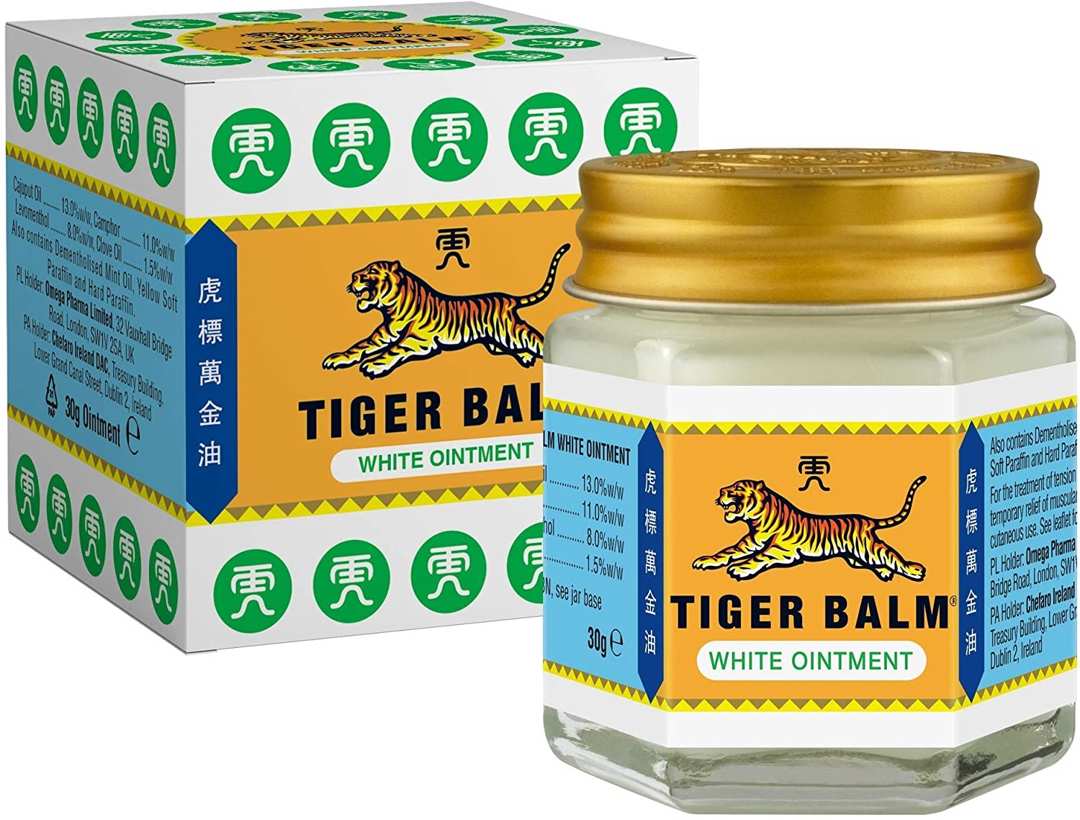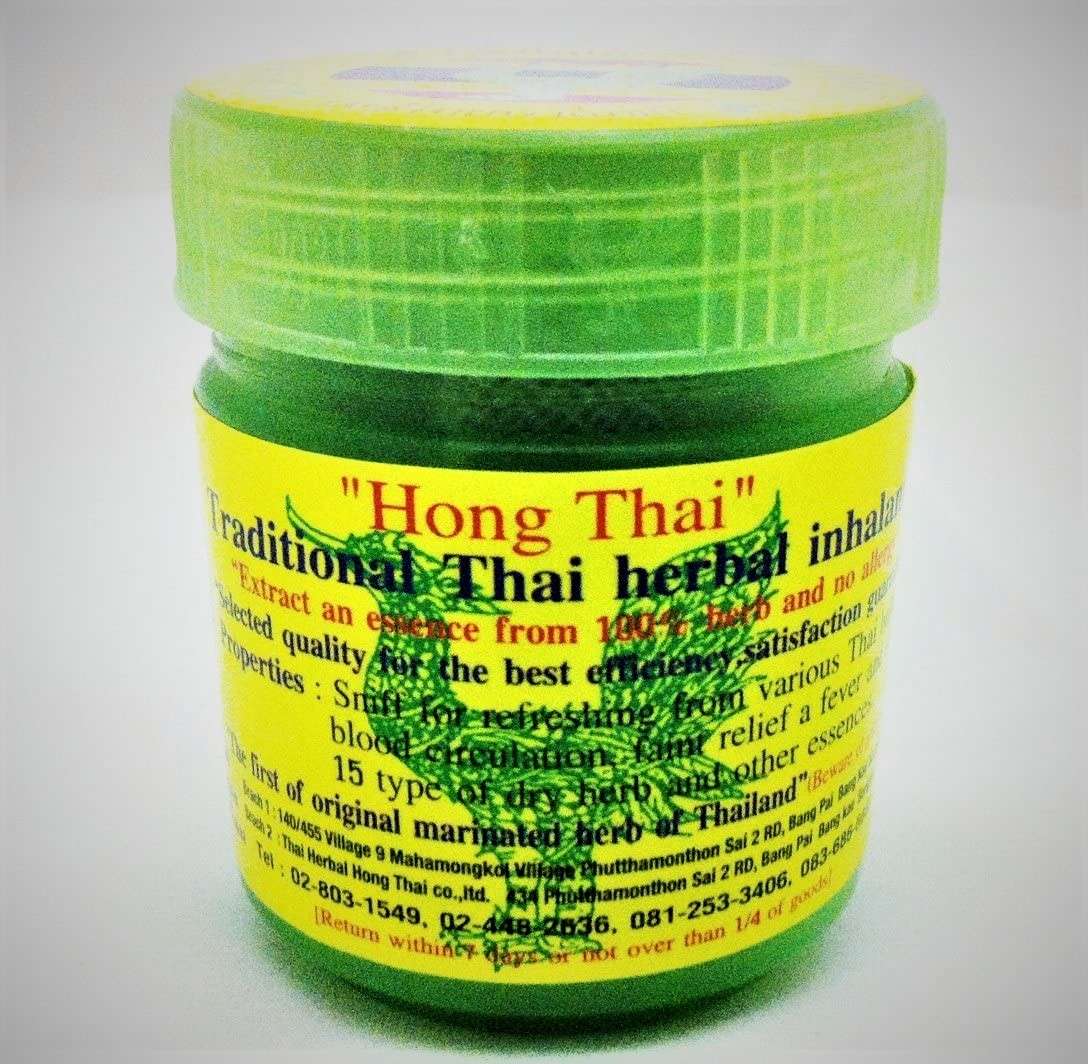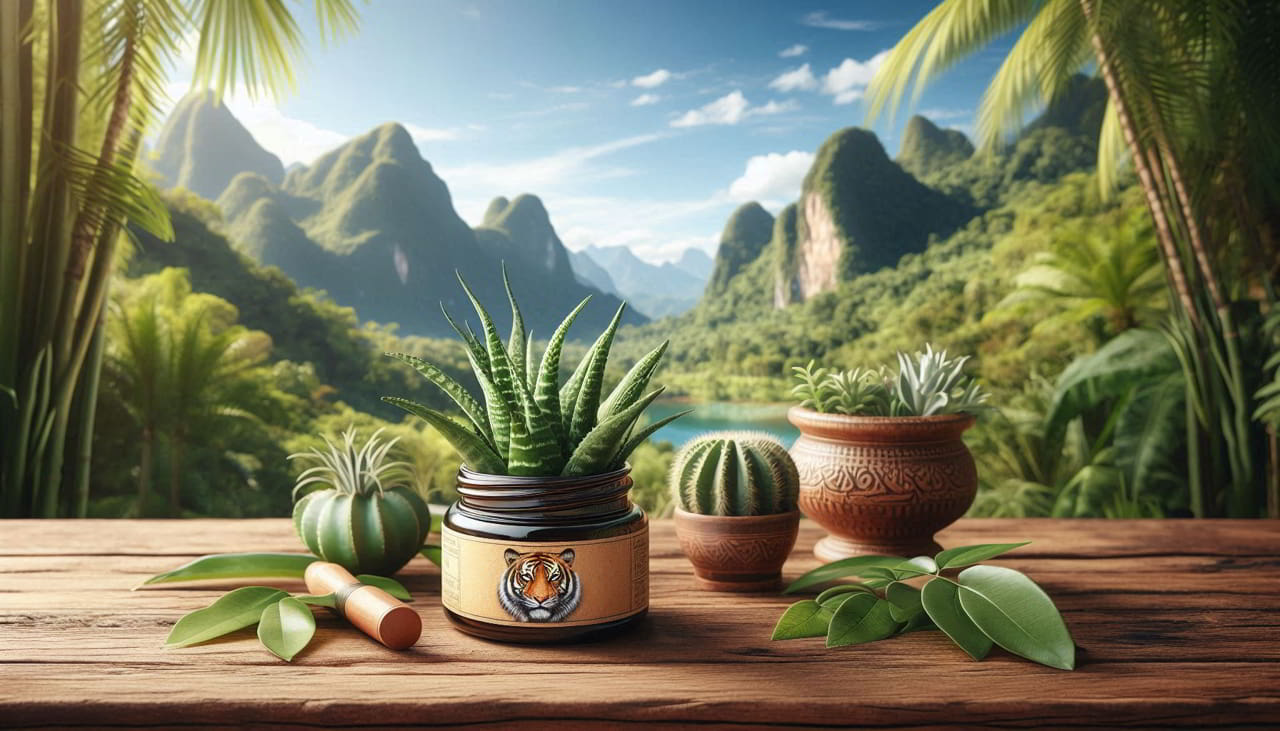
Tiger Balm in Thailand: Benefits, Uses, and Natural Alternatives
Asian balms, especially Tiger Balm, are incredibly popular in Thailand for relieving pain, colds, and insect bites. Several varieties exist, from different brands and with unique ingredients. Here’s an overview of the most popular balms in Thailand.
Origins of Tiger Balm: History and Rise in Thailand and Asia
The most famous of them all is undoubtedly Tiger Balm. Although rooted in traditional Chinese medicine, it was actually created in Yangon in the 1870s. Its formula was later refined in Singapore, where the brand’s headquarters remain today.
Tiger Balm owes its success to a perfected formula, the distinction between the red and white versions, and clever branding using the image of a tiger—symbol of strength and vitality. Legend has it that one of the founder’s sons arrived in Singapore with a real tiger. Whether myth or fact, the image and name are now recognized worldwide.
Red vs White Tiger Balm: Ingredients and Usage Differences
Most people know Tiger Balm as either red or white (though other versions exist). The differences go far beyond color. Their compositions and effects vary, although both contain camphor.
White Tiger Balm contains:
- 8% menthol
- Eucalyptus oil
- Clove oil
- Minor additives
Red Tiger Balm includes:
- 10% menthol
- Clove oil
- Mint oil
- Cajeput oil
- Chinese cinnamon oil (which gives it the red hue)
The menthol and cajeput oil in the red balm create a warming effect, while the white balm has a more cooling sensation.
Red Tiger Balm: Effective for Muscle Pain and Inflammation
Red Tiger Balm is commonly used for:
- Inflammation
- Muscle pain
- Backaches
It can also relieve stomach pain (gently massage the abdomen) and is great for energizing massages and easing cramps.
Order here: Tiger Balm Red
White Tiger Balm: Relief for Colds, Headaches, and Insect Bites
White Tiger Balm helps with:
- Nasal congestion
- Sinusitis
- Coughs
- Rhinitis
- Stomach aches (massage around the navel)
- Colds
- Headaches
- Insect bites (apply lightly and stop if skin bleeds)
- Wart removal (daily application for 2–3 weeks)
Order here: Tiger Balm White
Interested in local health practices? Read our guide on Healthcare in Thailand.
Surprising Uses of Tiger Balm: Mosquito Repellent, Cleaning Agent, and More
Tiger Balm is well-known for health benefits but also has some unexpected uses:
- Mosquito repellent: its strong scent deters bugs
- Fumigation: mix a small dab with hot water
- Air purifier: place some in hot water to refresh indoor spaces
- Termite repellent: rub onto affected furniture
- Adhesive remover: dissolves glue and sticker residue
- Paint remover: gently removes paint from skin
- Cat deterrent: prevents pets from marking houseplants
Green Thai Balm: Relaxing, Gentle Formula with Natural Ingredients
Green balm is less known but worth exploring.
Most green balms contain camphor, though the concentration varies by brand. They usually have more menthol than the other balms and may include green tea essential oil.
Primarily used for massage, green balm is known for its relaxing and antioxidant properties, thanks to the green tea.
One of the most popular options in Thailand is Thai Herbal Green Balm. Unlike Tiger Balm (25% camphor), this contains only 3%, giving it a milder scent and gentler warming effect. It’s made of:
- 45% Vaseline
- 24% Barleria Lupulina (Plai)
- 15% Paraffin
- 8% Menthol
- 5% Pogostemon Cablin (Patchouli)
Order here: Traditional Thai Herbal
Precautions and Side Effects of Asian Balms like Tiger Balm
Allergies and Who Should Avoid Tiger Balm
While Tiger Balm meets many safety standards, some similar-looking products may contain ingredients that trigger allergies or skin reactions. Always test a small area first and check the ingredients.
Those sensitive to essential oils should be extra cautious.
Tiger Balm and similar balms are not recommended for children under 7, pregnant women, or those breastfeeding.
Usage Tips: How to Apply Asian Balms Safely
Recommended guidelines:
- Wash hands after application
- Avoid contact with mucous membranes and lips
- Do not ingest
- Avoid using on irritated skin
- Do not use a heating pad after application
- Stop use if strong skin reaction occurs
Other Products: Tiger Balm Lotions, Patches, and Formats
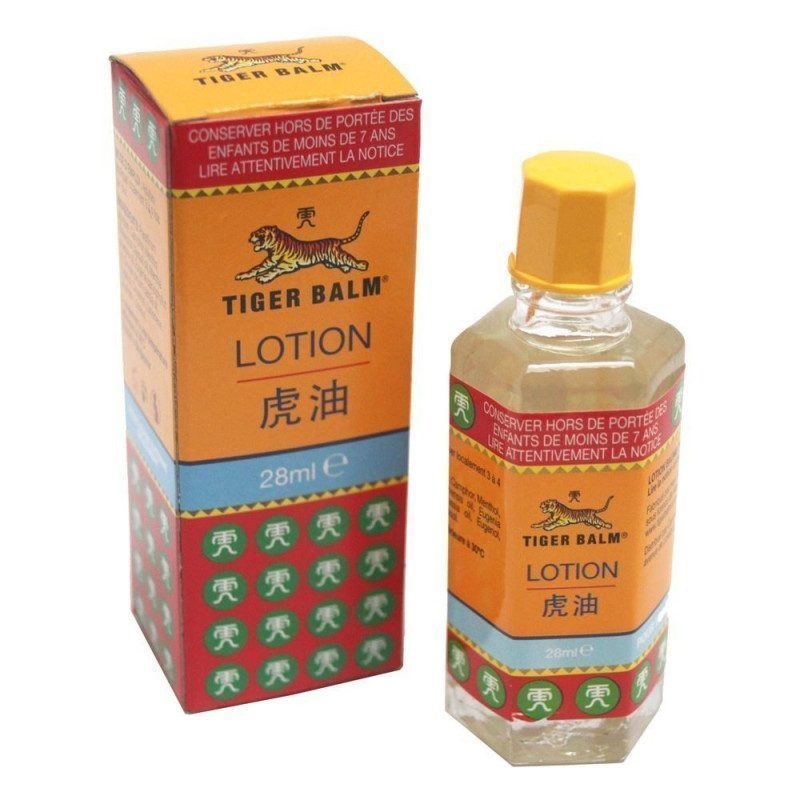
Tiger Balm Massage Lotion
A lighter version of the balm in liquid form—perfect for athletes.
Order here: Tiger Balm Massage Lotion

Tiger Balm Pain Relief Patches
These long-lasting patches target local pain effectively—very convenient for everyday use.
FAQ – Frequently Asked Questions About Tiger Balm in Thailand
Where can you buy Tiger Balm in Thailand?
Tiger Balm is widely available at pharmacies, 7-Eleven stores, supermarkets like Big C or Tesco Lotus, and local markets. Many massage shops and hotels also stock it.
Is Tiger Balm considered medicine?
Not officially. It’s a traditional remedy, part of alternative medicine, and doesn’t require a prescription.
What’s the difference between Tiger Balm and Thai green balm?
Thai green balm is gentler, often used for relaxation and light pain. Tiger Balm (red or white) is stronger and targets muscle or respiratory issues.
Can you use Tiger Balm on children?
Not recommended for children under 7 due to the potency of essential oils. Always consult a healthcare provider.
How long does Tiger Balm last?
Tiger Balm has a shelf life of 4 to 5 years. Store in a cool place and keep the lid tightly closed after use.



